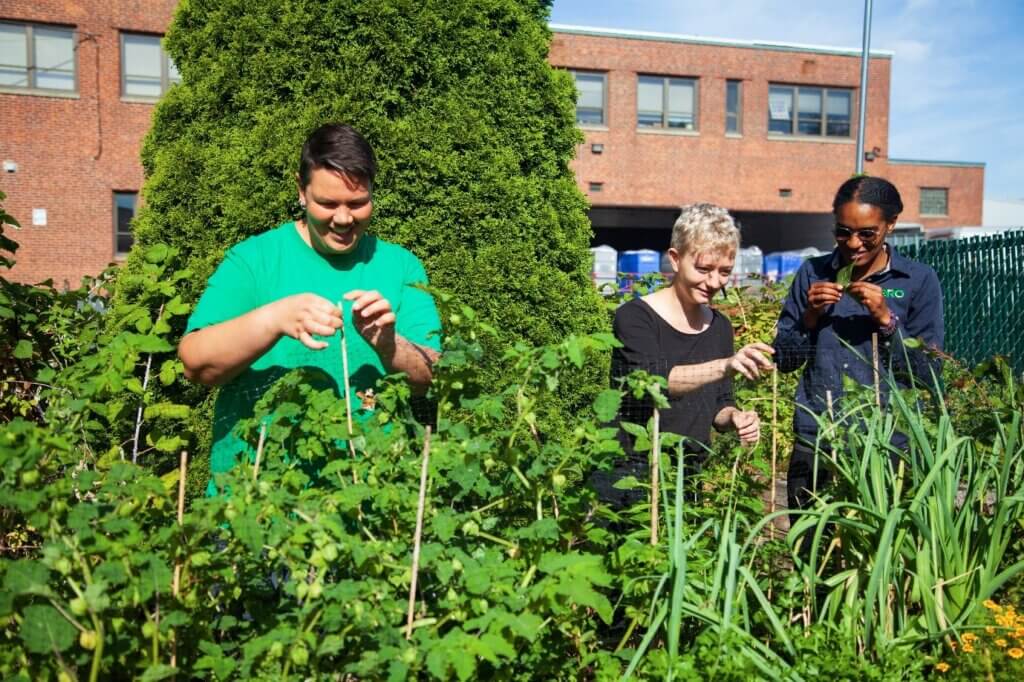12 March, 2021
Sustaining the zero-waste movement with GAIA
Organisational strengthening and effectiveness / Partner story
Photo: Waste pickers in Tacloban City (Philippines) making the Zero Waste sign. The city partnered with Mother Earth Foundation, a GAIA network member, to implement a highly successful Zero Waste programme. Source: GAIA.
Helping local women make and sell artisanal products made from plastic waste in Kenya. Introducing a compost programme to Ocean City, Maryland, United States. Providing Filipino waste pickers with meals and healthcare kits during the pandemic. These are some of the initiatives organised by member organisations of the Global Alliance for Incinerator Alternatives (GAIA), a network working to strengthen grassroots social movements that advance solutions to waste and pollution.
As consumption of plastic has grown exponentially worldwide in recent decades, many communities have resorted to burning plastic waste to dispose of this non-degradable material. However, not only does burning waste – especially plastic waste – fail to solve the problem, it also severely impacts both human health and the environment. To resolve this urgent issue, GAIA works to advance community-driven waste solutions through systems change and policy advocacy. It does this through three main channels: promoting zero waste, reducing problematic waste materials such as plastic, and putting an end to the practice of burning waste.

Photo: Members of CERO, a composting cooperative in Boston (USA) and a GAIA network member. Source: GAIA.
In recent years, in parallel with the heightened attention to the issue of how to manage waste and toxic materials globally, GAIA has experienced exponential growth, reaching organisations in 90 countries and on all continents. GAIA is one of the leading organisations participating in the global #BreakFreeFromPlastic movement. To ensure its organisational sustainability in the future, it became clear that GAIA needed to strengthen its internal capacity. In May 2019, Oak supported GAIA to do just that with a one-year capacity-building grant. It had three main objectives: (1) developing a long-term organisational development plan; (2) rebranding the organisation; and (3) laying a foundation for future growth.
One year later, GAIA had achieved most of its capacity-building objectives. The grant enabled GAIA to undergo a strategy review process to readdress its priorities and governance structures on both global and regional levels. This included: developing new leadership structures and focused workgroups to strengthen leadership engagement; connecting with members through regional meetings; and collaborating with experts and members to devise shared goals and visions for future work in zero waste. Most importantly, GAIA undertook an organisational assessment, which was instrumental in helping it identify key priorities important for building an effective and resilient organisation. The recommendations from the assessment have since acted as guideposts for the organisation’s plans of action. Simultaneously, other core functions such as communications, fundraising, and administration have been reassessed and strengthened, by bringing on new dedicated staff and realigning procedures and structures.
While Covid-19 prevented GAIA from realising some of its original goals, such as finalising its desired rebranding process and launching via a global meeting, GAIA’s capacity-building achievements allowed the organisation to adapt quickly to virtual engagements with members worldwide. During the difficult pandemic time it succeeded in developing effective cross-regional strategies and ensuring its long-term sustainability as a leading organisation in the global fight for solutions on waste and toxic pollution.
For any organisation, capacity building and organisational development is a continuous process that does not end when a grant closes. Moving forward, GAIA intends to continue building its capacity to match its strategic and rapid growth. It will achieve this by further implementing improved policies and procedures, which will be shared and reviewed by its members and similar alliances worldwide – for example, at the upcoming global gathering – for better and more cohesive impact. Once circumstances allow, the network will also reprioritise projects that had to be paused due to the pandemic. Oak Foundation is proud to contribute to GAIA’s mission to build and lead the global movement for zero waste, anti-incineration and plastics reduction. We are looking forward to hearing about its future developments.
Oak Foundation provides capacity-building support to our partners to help them grow stronger in terms of their organisational capacity, so that they can better attain their grant objectives and achieve their goals. If you would like to find out more about capacity-building and organisational development opportunities within Oak, please first check out the capacity-building page on our website. Having read that, Oak partners further interested in capacity-building and organisational development should discuss their needs with their programme officer directly.